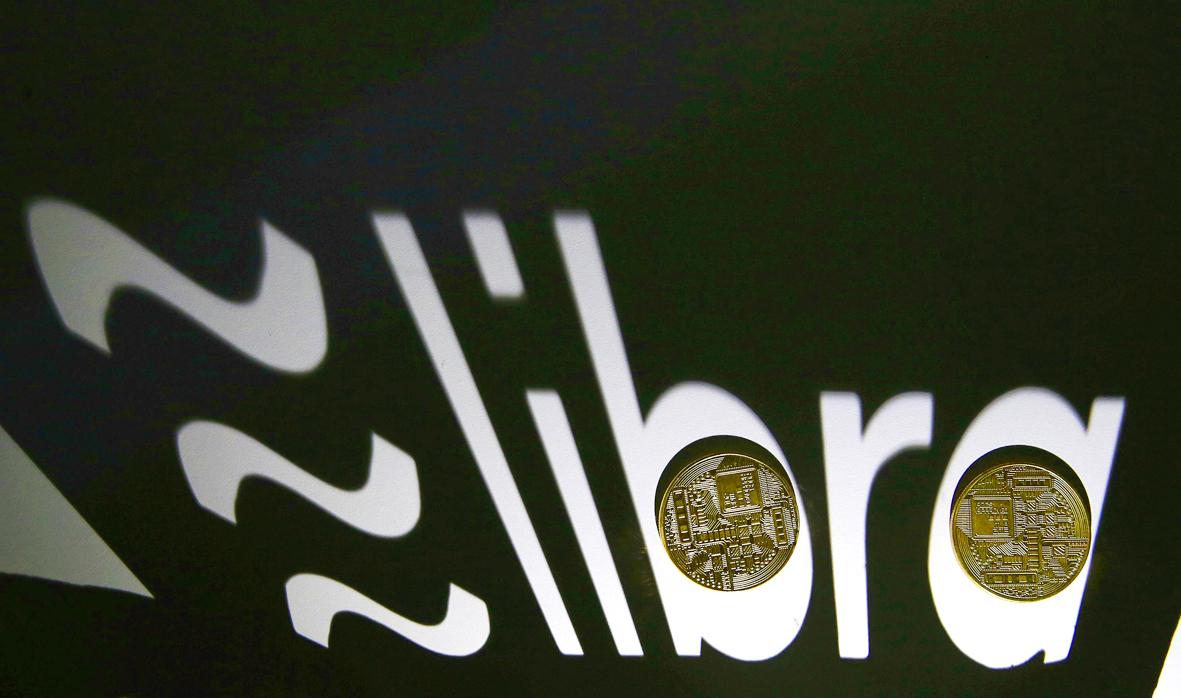Libra Association, a cryptocurrency project started by Facebook Inc that drew regulatory blowback worldwide, is hoping a new name offers a fresh chance to win over regulators and gain a foothold in the emerging market.
The group is now to be known as Diem Association, named for the word “day” in Latin, with its subsidiary Diem Networks serving as the payment system operator.
It is readying a currency that is to be called the Diem Dollar.

Photo: Reuters
“We like the connotation of it kind of being a new day for the project,” chief executive officer, Stuart Levey said in an interview. “We wanted a new start.”
Almost immediately after Libra launched in June last year, politicians and regulators raised concerns about the effort. They worried about privacy, money laundering and companies like Facebook taking power away from central banks.
Supporters such as PayPal Holdings Inc and Visa Inc fled the project, which initially hoped to attract 100 members before launch.
The new Diem, which had 27 participants as of yesterday, has abandoned the 100-member goal by launch and is taking things more slowly.
The group plans to issue a stablecoin — a digital currency pegged to an outside asset — that is tied to the US dollar.
Later, Diem might pursue additional fiat-based cryptocurrencies, Levey said.
Initially, Libra had proposed creating a cryptocurrency supported by a basket of government-issued fiat currencies and securities.
The group no longer needs 100 members to launch, though it is still hoping to expand its ranks, Levey said.
The association also no longer plans to eventually transition to a so-called permissionless blockchain, which would have let anyone participate in verifying transactions.
Other inner workings of the project might have changed as well.
Levey declined to comment on whether investors in the association would end up receiving a special governance coin, as per an earlier plan.
With the project’s ambitions scaled down, its appeal might have dwindled. There is plenty of competition from existing US dollar-based stablecoins, such as Tether and USD Coin.
One rival, called Celo Dollar, is also governed by an association that attracted many of the same companies that initially flocked to Libra.
Facebook has more than 2 billion users, some of whom might be persuaded to give Diem a try, but the social-networking giant had previously worked to distance itself from Libra. In May, it renamed its Calibra blockchain group Novi to make it sound less like Libra.
The Novi team is building a digital wallet that would eventually hold Diem coins, Levey said.
The Diem effort is waiting to be issued a license by Swiss regulators to launch, Levey said.
Diem is also in talks with US federal and state regulators, but is not waiting for any specific licenses or approvals from them, he said.
To satisfy regulators, Diem’s system would honor Western sanctions and regulatory reporting requirements.
“All of these design features we think make for a project we think that regulators will welcome,” Levey said, adding that he hopes central banks might wish to use the infrastructure in the future to issue their own digital currencies.

Vincent Wei led fellow Singaporean farmers around an empty Malaysian plot, laying out plans for a greenhouse and rows of leafy vegetables. What he pitched was not just space for crops, but a lifeline for growers struggling to make ends meet in a city-state with high prices and little vacant land. The future agriculture hub is part of a joint special economic zone launched last year by the two neighbors, expected to cost US$123 million and produce 10,000 tonnes of fresh produce annually. It is attracting Singaporean farmers with promises of cheaper land, labor and energy just over the border.

US actor Matthew McConaughey has filed recordings of his image and voice with US patent authorities to protect them from unauthorized usage by artificial intelligence (AI) platforms, a representative said earlier this week. Several video clips and audio recordings were registered by the commercial arm of the Just Keep Livin’ Foundation, a non-profit created by the Oscar-winning actor and his wife, Camila, according to the US Patent and Trademark Office database. Many artists are increasingly concerned about the uncontrolled use of their image via generative AI since the rollout of ChatGPT and other AI-powered tools. Several US states have adopted

KEEPING UP: The acquisition of a cleanroom in Taiwan would enable Micron to increase production in a market where demand continues to outpace supply, a Micron official said Micron Technology Inc has signed a letter of intent to buy a fabrication site in Taiwan from Powerchip Semiconductor Manufacturing Corp (力積電) for US$1.8 billion to expand its production of memory chips. Micron would take control of the P5 site in Miaoli County’s Tongluo Township (銅鑼) and plans to ramp up DRAM production in phases after the transaction closes in the second quarter, the company said in a statement on Saturday. The acquisition includes an existing 12 inch fab cleanroom of 27,871m2 and would further position Micron to address growing global demand for memory solutions, the company said. Micron expects the transaction to

A proposed billionaires’ tax in California has ignited a political uproar in Silicon Valley, with tech titans threatening to leave the state while California Governor Gavin Newsom of the Democratic Party maneuvers to defeat a levy that he fears would lead to an exodus of wealth. A technology mecca, California has more billionaires than any other US state — a few hundred, by some estimates. About half its personal income tax revenue, a financial backbone in the nearly US$350 billion budget, comes from the top 1 percent of earners. A large healthcare union is attempting to place a proposal before